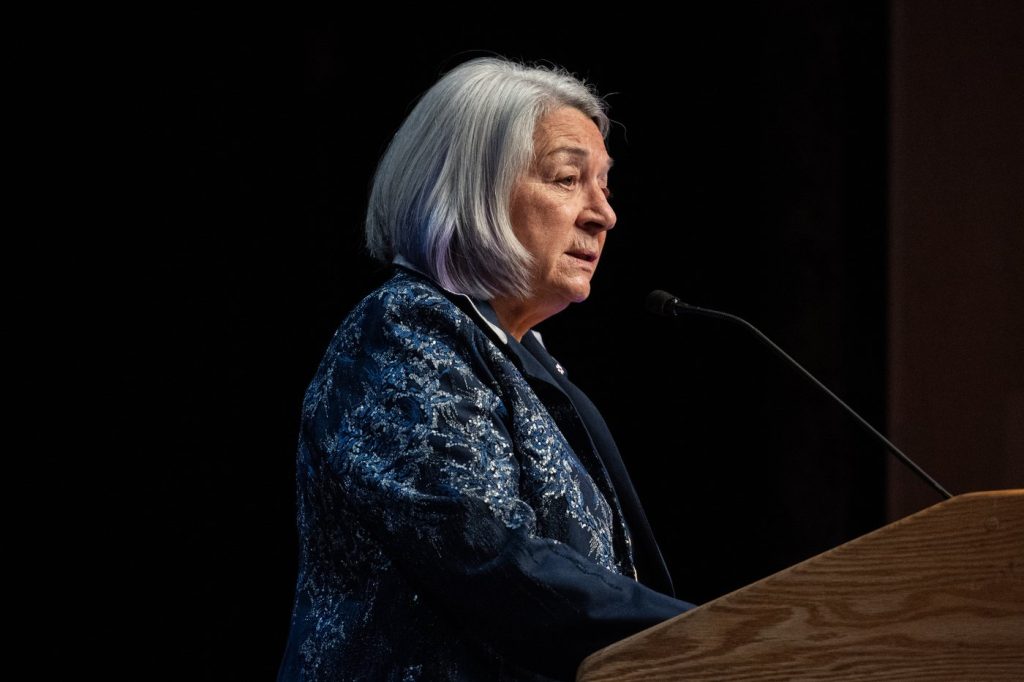Indigenous leaders gathered in Rome to honor the late Pope Francis during his funeral expressed hopes for the Vatican to continue the reconciliation efforts he championed throughout his papacy. Governor General Mary Simon, who led the Canadian delegation, emphasized the significance of the pope's apology for the historical injustices of the residential school system in Canada.
Simon, Canada’s first Indigenous governor general, reflected on Pope Francis's monumental visit to Canada in July 2022, where he aimed to reach out to Indigenous Peoples and address the painful legacy of residential schools. Alongside Wilton Littlechild, a residential school survivor and Truth and Reconciliation Commission commissioner, Simon conveyed their hopes that the next pope would build upon Francis's work.
Simon referred to the apology as "a significant milestone" in the ongoing journey of reconciliation, highlighting the importance of continued collaboration. She noted that the pope’s visit to Canadian lands and his direct apology to Indigenous peoples was a substantial act of recognition and healing. Littlechild echoed Simon's sentiments, stressing the necessity to maintain momentum in the reconciliation process for the healing journeys of Indigenous communities.
During the funeral, dignitaries and religious figures remembered Pope Francis for his dedicated outreach to marginalized communities, including migrants, the poor, and the sick. Simon expressed her hope that the new pope would sustain and elevate the reconciliation efforts initiated by Francis. "The apology was a significant milestone, and we have to continue working together on the journey of reconciliation," she mentioned shortly after the funeral.
The July 2022 papal visit was referred to as a "penitential pilgrimage" as the pope made efforts to meet with Indigenous residential school survivors and hear their testimonies. In Maskwacis, Alberta, he publicly sought forgiveness and expressed deep shame for the abuses committed by certain members of the Church. His visit also included a meeting with survivors in Nunavut who showcased traditional practices, including dancing, drumming, and throat singing, which had been suppressed in residential schools.
While the visit was generally regarded as a historic moment, some critics pointed out that the pope did not explicitly name the crimes and abuses faced by Indigenous children. Calls for action were also made, including the return of sacred artifacts held by the Vatican. Simon underscored the necessity for the Vatican to persist in its reconciliation efforts, acknowledging that while it’s a long process, progress is being made.
Approximately 150,000 Indigenous children were forcibly taken to residential schools in Canada, with more than 60% of these institutions operated by the Catholic Church. The ongoing dialogue and actions surrounding reconciliation reflect the complex and enduring impact of this dark chapter in Canadian history.











